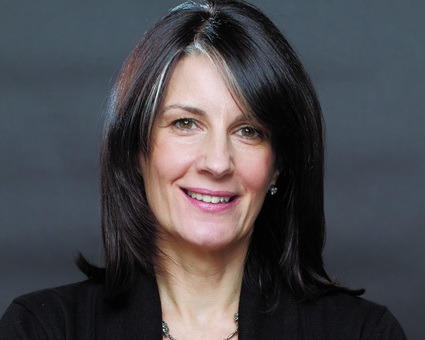Oh Snap! Protecting and Promoting Your Practice on Social Media
Your competitors are on social media burnishing their digital presence, interacting with clients and prospects—theirs and yours—upping their “top of mind” visibility and establishing their position as a thought leader and go-to lawyer.
July 02, 2018 at 02:45 PM
2 minute read

The Benefits
The Risks
The Rules
- Whether a lawyer may connect with a client or former client, represented party, unrepresented person, jurors or judges on a social networking website (yes; no; only honestly; no, but you can look at the juror's public internet presence; and sometimes).
- Whether lawyers can ask for or accept client reviews or endorsements, and whether they can comment on or respond to them? (Yes, and you have a duty to monitor those reviews for accuracy and compliance with the rules, including advertising and client confidentiality rules—oh, and no celebrity endorsements).
Balancing Risk and Reward
- Know your risk tolerance and how much time and energy you are willing to dedicate to social media—posting an article you wrote on LinkedIn may feel more comfortable to you than tweeting.
- Know the rules—all of the rules—or consult with someone who does.
- Keep your personal and your professional social media accounts separate
- Know, train and monitor the person who is handling your social media if it's not you.
- Plan ahead and plan strategically—know your platform, your audiences and your goals, and align your content with those.
- Monitor your social media accounts actively and respond thoughtfully to comments (conversations can go sideways quickly, and your response—or lack thereof—can make matters far worse than the original issue).
- Take it seriously—but not too seriously, because social media engagement can be a fun and rewarding endeavor.
This content has been archived. It is available through our partners, LexisNexis® and Bloomberg Law.
To view this content, please continue to their sites.
Not a Lexis Subscriber?
Subscribe Now
Not a Bloomberg Law Subscriber?
Subscribe Now
NOT FOR REPRINT
© 2025 ALM Global, LLC, All Rights Reserved. Request academic re-use from www.copyright.com. All other uses, submit a request to [email protected]. For more information visit Asset & Logo Licensing.
You Might Like
View All
AI and Social Media Fakes: Are You Protecting Your Brand?

Neighboring States Have Either Passed or Proposed Climate Superfund Laws—Is Pennsylvania Next?
7 minute read
Seven Rules of the Road for Managing Referrals To/From Other Attorneys, Part 2
6 minute readTrending Stories
- 1Some Thoughts on What It Takes to Connect With Millennial Jurors
- 2Artificial Wisdom or Automated Folly? Practical Considerations for Arbitration Practitioners to Address the AI Conundrum
- 3The New Global M&A Kings All Have Something in Common
- 4Big Law Aims to Make DEI Less Divisive in Trump's Second Term
- 5Public Notices/Calendars
Who Got The Work
J. Brugh Lower of Gibbons has entered an appearance for industrial equipment supplier Devco Corporation in a pending trademark infringement lawsuit. The suit, accusing the defendant of selling knock-off Graco products, was filed Dec. 18 in New Jersey District Court by Rivkin Radler on behalf of Graco Inc. and Graco Minnesota. The case, assigned to U.S. District Judge Zahid N. Quraishi, is 3:24-cv-11294, Graco Inc. et al v. Devco Corporation.
Who Got The Work
Rebecca Maller-Stein and Kent A. Yalowitz of Arnold & Porter Kaye Scholer have entered their appearances for Hanaco Venture Capital and its executives, Lior Prosor and David Frankel, in a pending securities lawsuit. The action, filed on Dec. 24 in New York Southern District Court by Zell, Aron & Co. on behalf of Goldeneye Advisors, accuses the defendants of negligently and fraudulently managing the plaintiff's $1 million investment. The case, assigned to U.S. District Judge Vernon S. Broderick, is 1:24-cv-09918, Goldeneye Advisors, LLC v. Hanaco Venture Capital, Ltd. et al.
Who Got The Work
Attorneys from A&O Shearman has stepped in as defense counsel for Toronto-Dominion Bank and other defendants in a pending securities class action. The suit, filed Dec. 11 in New York Southern District Court by Bleichmar Fonti & Auld, accuses the defendants of concealing the bank's 'pervasive' deficiencies in regards to its compliance with the Bank Secrecy Act and the quality of its anti-money laundering controls. The case, assigned to U.S. District Judge Arun Subramanian, is 1:24-cv-09445, Gonzalez v. The Toronto-Dominion Bank et al.
Who Got The Work
Crown Castle International, a Pennsylvania company providing shared communications infrastructure, has turned to Luke D. Wolf of Gordon Rees Scully Mansukhani to fend off a pending breach-of-contract lawsuit. The court action, filed Nov. 25 in Michigan Eastern District Court by Hooper Hathaway PC on behalf of The Town Residences LLC, accuses Crown Castle of failing to transfer approximately $30,000 in utility payments from T-Mobile in breach of a roof-top lease and assignment agreement. The case, assigned to U.S. District Judge Susan K. Declercq, is 2:24-cv-13131, The Town Residences LLC v. T-Mobile US, Inc. et al.
Who Got The Work
Wilfred P. Coronato and Daniel M. Schwartz of McCarter & English have stepped in as defense counsel to Electrolux Home Products Inc. in a pending product liability lawsuit. The court action, filed Nov. 26 in New York Eastern District Court by Poulos Lopiccolo PC and Nagel Rice LLP on behalf of David Stern, alleges that the defendant's refrigerators’ drawers and shelving repeatedly break and fall apart within months after purchase. The case, assigned to U.S. District Judge Joan M. Azrack, is 2:24-cv-08204, Stern v. Electrolux Home Products, Inc.
Featured Firms
Law Offices of Gary Martin Hays & Associates, P.C.
(470) 294-1674
Law Offices of Mark E. Salomone
(857) 444-6468
Smith & Hassler
(713) 739-1250






